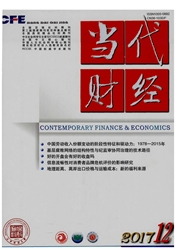

 中文摘要:
中文摘要:
经济新常态下,提高经济增长质量和效益是当前经济社会发展的重要目标。利用2000-2014年我国省级面板数据,分析了省级财政支出结构对经济增长的质量效应。研究发现,财政生产性支出和服务性支出的总体经济增长质量效应显著为正,消费性支出显著为负。从“五大发展理念”的角度看,生产性支出、服务性支出、消费性支出对创新、协调、绿色、开放、共享的边际效应存在显著差异;地区间财政支出结构的经济增长质量效应也有所不同。因此,为提升财政支出绩效及其经济增长质量效应,应以“五大发展理念”为指导,进一步优化财政支出结构,在保持生产性支出既有力度、压缩消费性支出规模的同时,加大对科教文卫、社会保障等服务性领域的财政支持。
 英文摘要:
英文摘要:
Under the new economic normality, to improve the quality and efficiency of economicgrowth is an important goal of the current economic and social development. This paper makes use of China's provincial panel data during 2000-2014 to explore the effects of the provincial fiscal ex- penditure structure on the quality of economic growth. The results show that the effect of the general economic growth quality of both productive expenditure and service expenditure is significantly posi- tive, while the non-productive expenditure is negative. From the perspective of the five developmental concepts, the productive expenditure, service expenditure and non-productive expenditure have signifi- cant differences on the marginal effects of innovation, coordination, greenness, opening up and shar- ing. The qualify effects of economic growth of inter-regional fiscal expenditure structure are also dif- ferent. Therefore, in order to improve the performance of fiscal expenditure and its quality effect of economic growth, the government should further optimize the fiscal expenditure structure under the guidance of "Five Development Concepts" , increase the fiscal support to the service sector, such as science, education, culture, health, social security and so on, while keeping the existing efforts in pro- ductive expenditure and compressing the scale of non-productive expenditures.
 同期刊论文项目
同期刊论文项目
 同项目期刊论文
同项目期刊论文
 期刊信息
期刊信息
